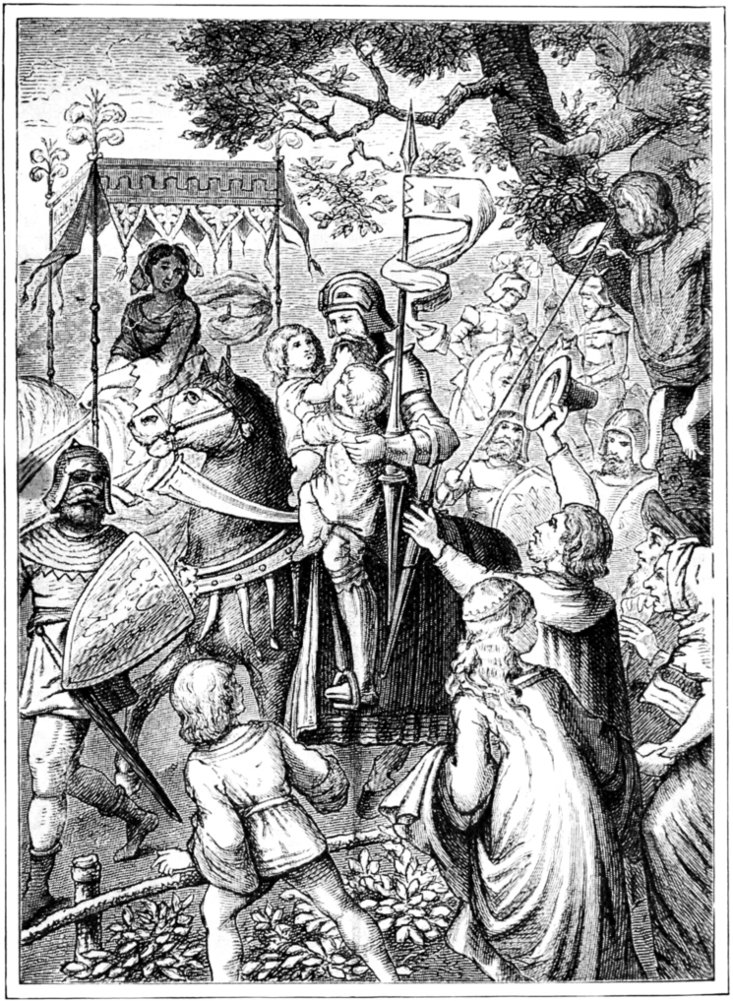

The Return of the Crusaders
Life Stories for Young People
BARBAROSSA
Translated from the German of
Franz Kühn
BY
GEORGE P. UPTON
Translator of “Memories,” etc.
WITH FOUR ILLUSTRATIONS

CHICAGO
A. C. McCLURG & CO.
1906
Copyright
A. C. McClurg & Co.
1906
Published September 22, 1906
THE UNIVERSITY PRESS, CAMBRIDGE, U.S.A.
Translator’s Preface
From whatever point of view we considerFrederick I,—more familiarly known as“Barbarossa,” because of his red beard,—whetheras the greatest of the sovereigns ofthe Holy Roman Empire, or as one of the mostgallant of the famous crusade leaders, the story ofhis life is one of absorbing interest. This littlevolume includes a sketch of the events which ledup to his accession to the throne of Germany, ofhis various campaigns in Italy after he had receivedthe imperial crown, and of the disastrous third Crusade,in which he took part with Richard the Lion-heartedof England and Philip Augustus of France.The young reader will probably feel most interestedin Barbarossa as a Crusader, particularly because inthis connection appear the two young knights,Raymond and Conrad, who became the protégés ofBarbarossa after the death of their gallant father,Conrad of Feuchtwangen, on the battlefield. Theirbrave exploits in battle, the adventurous ride ofRaymond when he carried to the Emperor the newsof the danger of his father and his little band in thevalley, the capture of the brothers by the fleeingTurks at Iconium, and the exciting description ofthe test to which the Sultan exposed them, willappeal to the young from the romantic side, whiletheir noble qualities as Christian knights and theirhigh manly character should make an equally forcibleappeal, in these days when knighthood can hardlybe said to be in flower.
In making this translation I have endeavored toretain the vigorous descriptions as well as the healthysentiment and charming simplicity of the author’smoralizing by keeping as closely to the original aspossible. The only liberty I have taken with thetext is the omission of passages here and there,—withoutmarring the context, however,—so as tomake the volume nearly uniform in size with theothers in the series. I have invariably characterizedFrederick as Emperor, referring to him thus asEmperor of the Holy Roman Empire rather thanas King of Germany.
G. P. U.
Chicago, July 1, 1906.